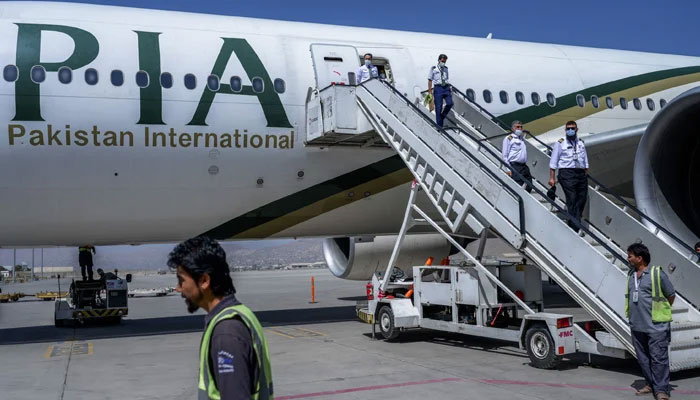White elephants
In Thailand, elephants are extensively trained to fulfill various roles. Traditionally, they have been trained to aid in logging operations, maneuvering through forests to haul felled trees. Additionally, elephants serve as majestic companions for tourists on trekking expeditions, offering unparalleled journeys through lush jungle landscapes. Elephants also participate in revered cultural events, like parades during Buddhist festivals. Moreover, these intelligent creatures astonish spectators with displays of athleticism, playing football or basketball with agility.
In Thai culture, white elephants are a different story altogether. White elephants are considered both sacred and auspicious. They are revered and cannot be utilized for work or labour. Legend has it that a Thai king deliberately presented a white elephant to a prince whom he disliked intensely. The prince had to provide 300 kilograms of grasses, leaves, bark, fruits, and vegetables, alongside 100 liters of water daily but could not use the white elephant for work or labour. Financial ruin loomed for the prince, bankruptcy inevitable.
The government of Pakistan owns more than 200 white elephants. Here’s an abridged list: PIA, PSO, Pakistan Railways, Pakistan Steel, Sui Southern, Sui Northern, Faisalabad Electric, Hyderabad Electric, Tribal Electric, HBFC, National Insurance, Jamshoro Power Company, Nandipur Power Project, Northern Power, National Transmission and Dispatch Company, Trading Corporation, Utility Stores, Pakistan Agriculture Storage, National Fertiliser, PTV, Zarai Taraqiati Bank, NBP, Pakistan Electric Power Company and the First Women Bank. There’s a bloodbath going on in 17 banking entities, seven insurance companies, nine Development Finance Institutions, three trading companies, four aviation companies, 23 ports and shipping companies, five chemical and 15 engineering companies.
Did you know that there is a company called the Pakistan Stone Development Company? Yes – and we have a company called Pakistan Horticulture Development and Export Company. Furniture Pakistan: what does that do? How about the National Industrial Parks Development and Management Company, Pakistan Gems and Jewellery Development Company and Pakistan Hunting and Sporting Arms Development Company?
Over the past five years, these 200 white elephants have accumulated some Rs4 trillion in losses. That means every Pakistani family has lost Rs115,000 in the past five years. That means every Pakistani has lost Rs17,000 in the past five years. It is all our money. Who is losing it and why?
In the 1980s, Vietnam confronted a severe economic crisis, mirroring challenges faced by Pakistan today. Staggering inflation, a trade deficit, and economic stagnation plagued the nation. To address these issues, Vietnam implemented the 'Doi Moi' economic reform programme in 1986. This programme had five key pillars: promoting privatization, attracting foreign direct investment, ending subsidies for state-owned enterprises (SOEs), dismantling domestic monopolies, and encouraging free trade. If Vietnam managed to privatize some 9,000 state-owned enterprises, why can’t we privatize 200?
Why does the government want to raise more taxes? Why not get rid of these white elephants? For the record, the figure for ‘Defence Affairs and Services’ in budget 2023-24 is Rs1.8 trillion. And the government’s white elephants have lost Rs4 trillion over the past five years.
The writer is a columnist based in Islamabad. He tweets/posts @saleemfarrukh and can be reached at: farrukh15@hotmail.com
-
 Leonardo DiCaprio's Co-star Reflects On His Viral Moment At Golden Globes
Leonardo DiCaprio's Co-star Reflects On His Viral Moment At Golden Globes -
 SpaceX Pivots From Mars Plans To Prioritize 2027 Moon Landing
SpaceX Pivots From Mars Plans To Prioritize 2027 Moon Landing -
 J. Cole Brings Back Old-school CD Sales For 'The Fall-Off' Release
J. Cole Brings Back Old-school CD Sales For 'The Fall-Off' Release -
 King Charles Still Cares About Meghan Markle
King Charles Still Cares About Meghan Markle -
 GTA 6 Built By Hand, Street By Street, Rockstar Confirms Ahead Of Launch
GTA 6 Built By Hand, Street By Street, Rockstar Confirms Ahead Of Launch -
 Funeral Home Owner Sentenced To 40 Years For Selling Corpses, Faking Ashes
Funeral Home Owner Sentenced To 40 Years For Selling Corpses, Faking Ashes -
 Why Is Thor Portrayed Differently In Marvel Movies?
Why Is Thor Portrayed Differently In Marvel Movies? -
 Dutch Seismologist Hints At 'surprise’ Quake In Coming Days
Dutch Seismologist Hints At 'surprise’ Quake In Coming Days -
 Australia’s Liberal-National Coalition Reunites After Brief Split Over Hate Laws
Australia’s Liberal-National Coalition Reunites After Brief Split Over Hate Laws -
 DC Director Gives Hopeful Message As Questions Raised Over 'Blue Beetle's Future
DC Director Gives Hopeful Message As Questions Raised Over 'Blue Beetle's Future -
 King Charles New Plans For Andrew In Norfolk Exposed
King Charles New Plans For Andrew In Norfolk Exposed -
 What You Need To Know About Ischemic Stroke
What You Need To Know About Ischemic Stroke -
 Shocking Reason Behind Type 2 Diabetes Revealed By Scientists
Shocking Reason Behind Type 2 Diabetes Revealed By Scientists -
 SpaceX Cleared For NASA Crew-12 Launch After Falcon 9 Review
SpaceX Cleared For NASA Crew-12 Launch After Falcon 9 Review -
 Meghan Markle Gives Old Hollywood Vibes In New Photos At Glitzy Event
Meghan Markle Gives Old Hollywood Vibes In New Photos At Glitzy Event -
 Simple 'finger Test' Unveils Lung Cancer Diagnosis
Simple 'finger Test' Unveils Lung Cancer Diagnosis




